|
Books Should Be Free Loyal Books Free Public Domain Audiobooks & eBook Downloads |
|
|
Books Should Be Free Loyal Books Free Public Domain Audiobooks & eBook Downloads |
|
Top Authors |
|---|
|
Book type:
Sort by:
|
By: Anton Chekhov (1860-1904) | |
|---|---|
 Schoolmaster and Other Stories
Schoolmaster and Other Stories
Anton Chekhov, perhaps better known as a world famous classical playwright for works such as "Uncle Vanya" and "The Cherry Orchard" was also a prolific short story writer. "The Schoolmaster and Other Stories" is one of several of his collections. It's a compilation of 30 short stories. Some bizarre, some comical but all very interesting. | |
By: Harold W. Fairbanks (1860-1952) | |
|---|---|
 The Western United States: A Geographical Reader
The Western United States: A Geographical Reader
“In preparation of this book the author has had in mind the needs of the upper grammar grades. The subject matter has not been selected with the object of covering the field of Western geography in a systematic manner, but instead the attempt has been made to picture as graphically as may be some of its more striking and interesting physical features, and the influence which these features have exerted upon its discovery and settlement.” (from the Preface of The Western United States) | |
By: United States Arms Control and Disarmament Agency | |
|---|---|
 Worldwide Effects of Nuclear War: Some Perspectives
Worldwide Effects of Nuclear War: Some Perspectives
This is a concise yet thorough explanation of what might happen to our world in the aftermath of a nuclear war. The myriad of potential effects will be global and wide-spread, and the potentials are glazed over in this short work. | |
By: Carlton McCarthy (1847-1936) | |
|---|---|
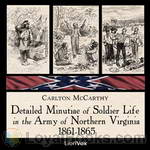 Detailed Minutiae of Soldier Life in the Army of Northern Virginia, 1861-1865
Detailed Minutiae of Soldier Life in the Army of Northern Virginia, 1861-1865
The author, who fought as a private in the Army of Northern Virginia during the Civil War, describes the Confederate soldier’s daily struggles with hunger, illness, fear, and the perils of combat; as well as his pride of service, love of comrades, and courage in the face of overwhelming odds | |
By: Abbie Farwell Brown | |
|---|---|
 The Christmas Angel
The Christmas Angel
Disagreeable old Miss Terry spends her Christmas Eve getting rid of toys from her childhood toy box. One by one she tosses them onto the sidewalk in front of her house, then secretly watches the little scenes that occur, which seem to confirm her belief that true Christmas spirit does not exist. Then the Angel from her childhood Christmas tree appears to show Miss Terry that she has not yet witnessed the final act of each of those little dramas...Living Age magazine in 1910 observed of The Christmas... | |
 Curious Book of Birds
Curious Book of Birds
Now the interesting facts about birds we have always with us. We can find them out for ourselves, which is a very pleasant thing to do, or we can take the word of others, of which there is no lack. But it is the quaint fancies about birds which are in danger of being lost. The long-time fancies which the world's children in all lands have been taught are quite as important as the every-day facts. They show what the little feathered brothers have been to the children of men; how we have come to like some and to dislike others as we do; why the poets have called them by certain nicknames which we ought to know; and why a great many strange things are so, in the minds of childlike people. | |
By: Octavus Roy Cohen (1891-1959) | |
|---|---|
 Midnight
Midnight
The crime seemed to have lost itself in the sleety cold of the December midnight upon which it was committed. The trails were not blind–there were simply no trails. The circumstances baffled explanation–a lone woman entering an empty taxicab; a run to a distant point in the city; the discovery of the woman’s disappearance, and in her stead the sight of the dead body of a prominent society man–that, and the further blind information that the suit-case which the woman had carried was the property of the man whose body was huddled horribly in the taxicab. | |
By: John L. Cotter (1911-1999) | |
|---|---|
 New Discoveries at Jamestown
New Discoveries at Jamestown
Chances are, you are reading this because you are aware that Jamestown, Virginia, celebrated its 400th birthday in 2007. It was the first “successful” English settlement in America. Although the colonists eventually moved upriver to be quit of the hard luck and difficult conditions on the small island, they left behind a trove of possessions – used, worn out, or forgotten. Did you ever stop to consider just how many different items you have, need, or use, to live, work, and amuse yourself? Chances are that you would seriously underestimate! But once you put such a list together, another person could tell quite a story about the life you lead... | |
By: William Henry Giles Kingston | |
|---|---|
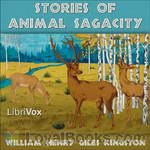 Stories of Animal Sagacity
Stories of Animal Sagacity
300+ short stories of how smart and savvy various individual animals have been seen to be, and in most cases a little moral is drawn from the story. | |
By: Jerome K. Jerome (1859-1927) | |
|---|---|
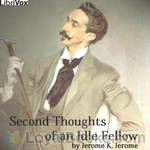 Second Thoughts Of An Idle Fellow
Second Thoughts Of An Idle Fellow
A second volume of humorous essays on various subjects, following the success of Idle thoughts Of An Idle Fellow. | |
 Diary of a Pilgrimage
Diary of a Pilgrimage
A possibly fictionalised account by the comic novelist Jerome K. Jerome of a trip to Germany that he undertook with a friend in order to see the famous Passion Play at Oberammergau. The journey takes in London, Dover, Ostend, Cologne, Munich, Oberau, Oberammergau and then back to London via Heidelberg. As one might expect from the author of 'Three Men in a Boat', much goes wrong along the way, including seasickness, strange food, stranger beds, misleading guidebooks, bewildering train timetables, and numerous cultural and linguistic misunderstandings. | |
By: Stanton H. King | |
|---|---|
 Dog-Watches at Sea
Dog-Watches at Sea
Stanton H. King was from Barbados and followed his brothers to sea at the age of twelve in 1880. He spent only twelve years at sea for reasons given in this book. Thereafter, he became associated with the Sailors’ Haven, Boston, Massachusetts and became its director. He was also a renowned Chantie singer and, in 1918, King’s Book Of Chanties was published. King views the sailing life from “before the mast”, that is, through the eyes of the common sailor. | |
By: Edwin L. Arnold | |
|---|---|
 Gulliver of Mars
Gulliver of Mars
This escapist novel, first published in 1905 as Lieutenant Gullivar Jones: His Vacation, follows the exploits of American Navy Lieutenant Gulliver Jones, a bold, if slightly hapless, hero who is magically transported to Mars; where he almost outwits his enemies, almost gets the girl, and almost saves the day. Somewhat of a literary and chronological bridge between H.G. Wells and Edgar Rice Burroughs, Jones’ adventures provide an evocative mix of satire and sword-and-planet adventure. | |
By: H. De Vere Stacpoole (1863-1951) | |
|---|---|
 The Blue Lagoon
The Blue Lagoon
Two shipwrecked children grow up on a South Pacific island. This beautiful story of adventure and innocent love was H.D. Stacpoole’s most popular work.Parents who may have seen the Hollywood film need not be anxious about the book's suitability for kids -- the author's treatment of adolescent sexuality is almost mystical and very mild. The story of The Blue Lagoon (1908) continues in The Garden of God (1923) and The Gates of Morning (1925). A ship’s doctor, Henry De Vere Stacpoole (1863–1951) published over 90 works of fiction, poetry, autobiography, and translation. | |
 The Man Who Lost Himself
The Man Who Lost Himself
Best known for his literary work The Blue Lagoon, which has been made into film several times over, H. De Vere Stacpoole’s first publication was a book titled The Intended in 1894. Stacpoole was disappointed at its lack of commercial success, and felt the story was too good to let go. He eventually re-worked the book, culminating in The Man Who Lost Himself, a light-hearted story of a luckless American visiting London on yet another of his failed business ventures, when he happens upon a gentleman of status and wealth, who also just happens to be his exact look-alike. | |
By: Mary Antin | |
|---|---|
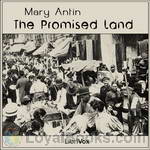 The Promised Land
The Promised Land
Being a Jew in Russia at the end of the 19th century was not easy at all. Jews were persecuted because of their religion. So the Jews found comfort in their ancient traditions. When Mary Antin’s father decided that keeping to his traditions did not suit him anymore, he found no place in Russia. So he emigrated to America with his family. Life was not easy, though as a child, Mary describes life in Boston as almost perfect. A smart and dignified girl, Mary takes the good things in anything and writes her autobiography with a smile. | |
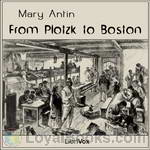 From Plotzk to Boston
From Plotzk to Boston
An intensely personal account of the immigration experience as related by a young Jewish girl from Plotzk (a town in the government of Vitebsk, Russia). Mary Antin, with her mother, sisters, and brother, set out from Plotzk in 1894 to join their father, who had journeyed to the “Promised Land” of America three years before. Fourth class railroad cars packed to suffocation, corrupt crossing guards, luggage and persons crudely “disinfected” by German officials who feared the cholera, locked “quarantine” portside, and, finally, the steamer voyage and a famiily reunited... | |
By: Michel Eyquem de Montaigne (1533-1592) | |
|---|---|
 Essays, Book 1
Essays, Book 1
Michel Eyquem de Montaigne is one of the most influential writers of the French Renaissance, known for popularising the essay as a literary genre and is popularly thought of as the father of Modern Skepticism. He became famous for his effortless ability to merge serious intellectual speculation with casual anecdotes and autobiography—and his massive volume Essais (translated literally as "Attempts") contains, to this day, some of the most widely influential essays ever written. | |
By: Martha Finley (1828-1909) | |
|---|---|
 Elsie Dinsmore
Elsie Dinsmore
Elsie, young and motherless, has never met her father and is being raised by her father’s family. As a strong Christian, she has many trials within the unbelieving family. Her greatest comforts are her faith and her mammy, Chloe. Finally, her father returns home. Will her father love her? Will her father learn to love Jesus? | |
 Holidays at Roselands
Holidays at Roselands
This is the second book of the much loved Elsie Dinsmore series and starts where the first book left off. Elsie is still recuperating from her weakness, with her kind and indulgent father by her side.The story revolves around how a strong bond of love and understanding takes root between the father and daughter, as they holiday at Roselands, and visit exciting places, with some of our favorite friends from the first book, Mr. Travilla, Adelaide, Chloe, Lora and the others. | |
 Elsie's Girlhood
Elsie's Girlhood
In the third book of Martha Finley's much-loved Elsie Dinsmore series, Elsie's life is traced from the tender age of 12 or 13 to the mature age of 21. Her life is not all sunshine and roses, but she is secure in the love of the Lord and her family. | |
 Elsie's Motherhood
Elsie's Motherhood
After the Civil War, Elsie and her family return to their home in the South, dealing with the upheaval that the Reconstruction Era brought during the years after the war. | |
 Elsie's Children
Elsie's Children
This book continues the delightful "Elsie Dinsmore" series. Elsie's children, introduced in the previous volume, live life, grow up, and encounter various problems of their own. Additional Proof Listeners: AlaynaMay & Rachel. | |
By: P. T. Barnum (1810-1891) | |
|---|---|
 The Humbugs of the World
The Humbugs of the World
P. T. Barnum exposes some of the chief humbugs of the world with his usual entertaining style. He looks at medicine and quacks, ghosts, witchcraft, religious humbugs, money manias, adventurers, personal reminiscences, and much more. | |
By: H. Beam Piper and John J. McGuire | |
|---|---|
 Lone Star Planet
Lone Star Planet
New Texas: its citizens figure that name about says it all. The Solar League ambassador to the Lone Star Planet has the unenviable task of convincing New Texans that a s’Srauff attack is imminent, and dangerous. Unfortunately it’s common knowledge that the s’Srauff are evolved from canine ancestors—and not a Texan alive is about to be scared of a talking dog! But unless he can get them to act, and fast, there won’t be a Texan alive, scared or otherwise! | |
By: William Blackstone | |
|---|---|
 Commentaries on the Laws of England (1765)
Commentaries on the Laws of England (1765)
The Commentaries on the Laws of England are an influential 18th century treatise on the common law of England by Sir William Blackstone, originally published by the Clarendon Press at Oxford, 1765-1769.The Commentaries were long regarded as the leading work on the development of English law and played a role in the development of the American legal system. They were in fact the first methodical treatise on the common law suitable for a lay readership since at least the Middle Ages. The common law of England has relied on precedent more than statute and codifications and has been far less amenable than the civil law, developed from the Roman law, to the needs of a treatise... | |
By: Carolyn Wells (1862-1942) | |
|---|---|
 The Jingle Book
The Jingle Book
A collection of silly poetry and limericks for children. | |
 Gold Bag
Gold Bag
The case involves a millionaire murdered in his study, suspicious servants, a beautiful niece, a private secretary and a will. enamored. A Holmes like detective is brought in to solve the mystery. | |
By: August Strindberg (1849-1912) | |
|---|---|
 Countess Julie
Countess Julie
August Strindberg’s naturalistic one-act drama has only three characters: Julie, a passionate young noblewoman; Jean, her father’s ambitious valet; and Kristin, the cook, who is also Jean’s fiancee. The play is set on Midsummer Eve, when everyone is reveling, and Julie and Jean get a bit too intimate – with tragic results. | |
 Creditors
Creditors
Creditors is an 1889 tragicomedy by August Strindberg that plumbs the depths of the twisted triangular relationship between Tekla, her husband Adolph, and her ex-husband Gustav. | |
 There are Crimes and Crimes
There are Crimes and Crimes
| |
By: Thomas W. Hanshew (1857-1914) | |
|---|---|
 Cleek: The Man of the Forty Faces
Cleek: The Man of the Forty Faces
Meet Hamilton Cleek – man of mystery, and master of disguise and derring-do. Cleek’s exploits are, to say the least, highly improbable, but the book is enormous fun. The goodies are good and the baddies are very bad indeed, but beware – things are not always what they seem. Suspend your disbelief and enjoy a rattling good yarn! Cleek is the central figure in dozens of short stories that began to appear in 1910 and were subsequently collected in a series of books. | |
 Cleek of Scotland Yard
Cleek of Scotland Yard
Hamilton Cleek is back - or is he?Margot, Queen of the Apaches (the notorious French criminal gang) has been released on bail and vanished, Mr. Narkom has a series of inexplicable murders to solve, there is talk of revolution in Mauravania. And Cleek is missing.Hold on to your hats for another thrilling ride as spying, murder, horse-napping, bombs and political intrigue rear their ugly heads. (Introduction by Ruth Golding) | |
By: Voltairine de Cleyre | |
|---|---|
 Selected Essays
Selected Essays
Voltairine de Cleyre (1866–1912) was, according to Emma Goldman, “the most gifted and brilliant anarchist woman America ever produced.” Today she is not widely known as a consequence of her short life. De Cleyre was especially influenced by Thomas Paine, Mary Wollstonecraft and Clarence Darrow. After the hanging of the Haymarket protesters in 1887, she became an anarchist. “Till then I believed in the essential justice of the American law of trial by jury,” she wrote in an autobiographical essay, “After that I never could”... | |
 Selected Works: Haymarket Speeches
Selected Works: Haymarket Speeches
Voltairine de Cleyre (November 17, 1866 – June 20, 1912) was an American anarchist. She was skilled in many subjects and wrote essays, poems, letters, sketches, stories and speeches. These are her selected Haymarket speeches. | |
 Selected Letters, Sketches and Stories
Selected Letters, Sketches and Stories
Voltairine de Cleyre (November 17, 1866 – June 20, 1912) was an American anarchist. She was skilled in many subjects and wrote essays, poems, letters, sketches, stories and speeches. These are her selected letters, sketches and stories. | |
 Selected Works: Poems
Selected Works: Poems
Voltairine de Cleyre (November 17, 1866 – June 20, 1912) was an American anarchist. She was skilled in many subjects and wrote essays, poems, letters, sketches, stories and speeches. These are her selected poems. | |
By: Friedrich Kerst | |
|---|---|
 Mozart, The Man and the Artist as Revealed in His Own Words
Mozart, The Man and the Artist as Revealed in His Own Words
Wolfgang Amadeus Mozart. His name is one of the most recognizable names in history and one of the most enduring of composers. At age 5, this “wunderkinder” took to the stage and began his life as a prolific and celebrated creator-genius of such luminous works the world has not known since. This collection of morsels taken from his personal letters is engaging and gives a look into the mind of the boy wonder. Was he mad? Was he miraculous? | |
By: François Rabelais (1483-1553) | |
|---|---|
 Gargantua and Pantagruel
Gargantua and Pantagruel
The Life of Gargantua and of Pantagruel (in French, La vie de Gargantua et de Pantagruel) is a connected series of five novels written in the 16th century by François Rabelais. It is the story of two giants, a father (Gargantua) and his son (Pantagruel) and their adventures, written in an amusing, extravagant, satirical vein. There is much crudity and scatological humor as well as a large amount of violence. Long lists of vulgar insults fill several chapters. | |
By: William H. Prescott | |
|---|---|
 History of the Conquest of Mexico by William H Prescott (d. 1859)
History of the Conquest of Mexico by William H Prescott (d. 1859)
Much have I travell’d in the realms of gold,And many goodly states and kingdoms seen;Round many western islands have I beenWhich bards in fealty to Apollo hold.Oft of one wide expanse had I been toldThat deep-brow’d Homer ruled as his demesne;Yet never did I breathe its pure sereneTill I heard Chapman speak out loud and bold.Then felt I like some watcher of the skiesWhen a new planet swims into his ken;Or like stout Cortez, when with eagle eyesHe star’d at the Pacific – and all his menLook’d at each other with a wild surmise -Silent, upon a peak in Darien... | |
By: George W. Ogden (1871-1966) | |
|---|---|
 The Duke of Chimney Butte
The Duke of Chimney Butte
An exciting tale of gun play, brave deeds and romance as Jerry Lambert, the “Duke” tries to protect the ranch of the lovely and charming Vesta Philbrook from thieving neighbors and other evil doers. | |
By: James De Mille (1833-1880) | |
|---|---|
 A Strange Manuscript Found in a Copper Cylinder
A Strange Manuscript Found in a Copper Cylinder
A Strange Manuscript Found in a Copper Cylinder is the most popular of James De Mille’s works. It was serialized posthumously in Harper’s Weekly, and published in book form by Harper and Brothers of New York City in 1888. This satirical romance is the story of Adam More, a British sailor. Shipwrecked in Antarctica, he stumbles upon a tropical lost world of prehistoric animals, plants, and a cult of death-worshipping primitives. He also finds a highly developed human society which has reversed the values of Victorian society... | |
By: Catherine Helen Spence (1825-1910) | |
|---|---|
 Mr. Hogarth's Will
Mr. Hogarth's Will
Jane and Elsie Melville were raised by their kindly but eccentric uncle, Mr Hogarth who believed that women were just as good as men, and thus gave his nieces a boy’s education. Upon his death, they find that he has left his entire fortune to his heretofore unknown son and left them only a small allowance, expecting them to make their own way in the world using the education he furnished them. Will the girls survive in a world that expects them, at the most, to become governesses? | |
By: Richard Burton Deane (1848-1940) | |
|---|---|
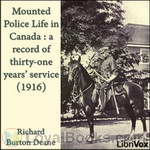 Mounted Police Life in Canada : a record of thirty-one years' service (1916)
Mounted Police Life in Canada : a record of thirty-one years' service (1916)
Learn more about the famous and respected Royal Canadian Mounted Police. This book is the personal recollections of one ‘Mountie’; his life, experiences and trials as an officer in a new frontier – The Canadian Northwest. | |
By: Daisy Ashford (1881-1972) | |
|---|---|
 The Young Visiters, or Mr. Salteena's Plan
The Young Visiters, or Mr. Salteena's Plan
The Young Visiters is a comic romance novella that parodies upper class society of late Victorian England. Social climber Alfred Salteena introduces his young lady friend Ethel to a genuine gentleman named Bernard and, to his irritation, they hit it off. But Bernard helps Alfred in his plan to become a gentleman, which, Alfred hopes, will help him win back Ethel. | |
By: Jacques Futrelle (1875-1912) | |
|---|---|
 Elusive Isabel
Elusive Isabel
Elusive Isabel is a novel by Jacques Futrelle (April 9, 1875 – April 15, 1912) first published in 1909. Set in Washington, D.C., it is a spy novel about an international conspiracy of the “Latin” countries against the English-speaking world with the aim to take over world control. | |
By: P. R. Kincaid | |
|---|---|
 The Arabian Art of Taming and Training Wild and Vicious Horses
The Arabian Art of Taming and Training Wild and Vicious Horses
Back in the day before automobiles, a good horse trainer and veterinarian was the equivalent of “Mr Goodwrench”. A badly behaving or unhealthy equine was equivalent to breaking down on the highway or running out of gas on a lonely stretch of highway somewhere in Utah. My sources tell me that most of the training methods are ok, but stay away from the medical tips unless you are prepared to become the poster boy or girl for the local SPCA. Listen with tongue in cheek, and check with a professional before attempting any of these techniques on a real animal. | |
By: José Rizal (1861-1896) | |
|---|---|
 Noli Me Tangere (The Social Cancer)
Noli Me Tangere (The Social Cancer)
Noli Me Tangere (Latin for Touch Me Not) is a novel by the National Hero of the Philippines, Dr. José Rizal. It was originally written in Spanish, and first published in Germany in 1887. Noli Me Tangere exposed the corruption and abuse of the Spanish government and clergy towards the Philippine people and the ills of the Philippine society. This novel, and its sequel El Filibusterismo were banned in many parts of the Islands. Rizal was later arrested for inciting rebellion, based largely on his writings, and was excuted in Manila... | |
By: Edwin F. Benson | |
|---|---|
 Life in a Mediaeval City, Illustrated by York in the XVth Century
Life in a Mediaeval City, Illustrated by York in the XVth Century
A short and gentle overview of mediaeval life in a large city. It lightly covers the class structure of society, local government, guilds, pageantry and punishment. The author has an easy, rhythmic style which leaves the reader wanting to find out more. | |
By: Carley Dawson (1910-1977) | |
|---|---|
 Mr Wicker's Window
Mr Wicker's Window
When Christopher Mason walked into Mr. Wicker's antique shop, he had no idea he would soon be embarking on a marvellous journey to China to find a wonderful tree made of jewels. He had no idea that Mr. Wicker was a magician and could travel through time. And that the tree was sought by others, not least among them the murderous Claggett Chew, a merchant in port and a pirate on the high seas, who also had knowledge of magic. But before Chris succeeded in quest, he would know of all these things and more... | |
By: E. R. Eddison | |
|---|---|
 The Worm Ouroboros
The Worm Ouroboros
This classic 1922 fantasy novel brings you to a strange and lovely world where a young lord wrestles King Gorice for his land’s freedom, where unscalable mountains can only be conquered by stubbornness and hippogriffs, where the great explorer Lord Gro finds himself continually driven to betrayal, where sweet young women occasionally fall for evil wizards, and where the heroes actually win their hearts’ desire. | |
By: Rebecca West (1892-1983) | |
|---|---|
 The Return of the Soldier
The Return of the Soldier
In 1916 on an isolated country estate just outside London, Captain Chris Baldry, a shell-shocked captain suffering from amnesia, makes a bittersweet homecoming to the three women who have helped shape his life. Will the devoted wife he can no longer recollect, the favorite cousin he remembers only as a childhood friend, and the poor innkeeper’s daughter he once courted leave Chris to languish in a safe, dreamy past–or will they help him recover his memory so that he can return to the front? The answer is revealed through a heart-wrenching, unexpected sacrifice. | |
By: E.D.E.N. Southworth. | |
|---|---|
 The Hidden Hand
The Hidden Hand
“If you will listen to this book, you will meet a cast of unforgettable characters, as different from one another as the sun and moon. But they have one thing in common – all of them hide many, many secrets. The plot of this book is full of twists which may leave you guessing until the end. Bridget’s lively reading adds much to the joy of listening to this book.” (Summary by Stav Nisser) | |
By: Joris-Karl Huysmans | |
|---|---|
 Against the Grain, or Against Nature
Against the Grain, or Against Nature
“THE BOOK THAT DORIAN GRAY LOVED AND THAT INSPIRED OSCAR WILDE”. Such is the enticing epigraph of one early translation of Huysmans’ cult novel of 1884, which is also routinely called the Bible of Decadence. Accurate descriptions, both, of this bizarre masterpiece which has reverberated ever since through high and popular culture. “Against Nature” (or in this version “Against The Grain”) explores to the furthest limit the life of the world-rejecting aesthete living a reclusive existence devoted entirely to artificial paradises of his own devising... | |
By: Charles Foster Kent | |
|---|---|
 The Making of a Nation: The Beginnings of Israel's History
The Making of a Nation: The Beginnings of Israel's History
Charles Foster Kent was one of the premier scholars in Jewish Studies at the turn of the century. He was particularly well-known for his comparisons of early Christianity to its Jewish roots. He also wrote several distinguished histories of Israel, the Jewish people, Torah studies, and the development of oral Torah. | |
By: Albert Payson Terhune (1872-1942) | |
|---|---|
 His Dog
His Dog
Albert Payson Terhune, perhaps best known for his book Lad, a Dog (later turned into a popular movie), was also a breeder of collies and a journalist. Some of his collie lines survive to this day. His Dog is a story about Link Ferris who finds an injured dog on his way home one evening. Knowing nothing about dogs, Link nurses the dog back to health and the two form a bond such as only can be formed between human and canine. Unable to locate the collie’s owner, Link christens his dog ‘Chum’ who becomes invaluable in tending to the daily needs of his meager farm... | |
By: Albert Payson Terhune (1872-1942) | |
|---|---|
 Bruce
Bruce
Albert Payson Terhune was a journalist but is probably best known as a breeder of dogs, in particular collies at his Sunnybank Kennels. Bruce charts the story of an unwanted puppy who becomes loved by the mistress of the family. He then becomes enlisted as a carrier dog in World War 1, completing heroic tasks and coming home a war hero | |
By: Rose Wilder Lane (1886-1968) | |
|---|---|
 Henry Ford's Own Story
Henry Ford's Own Story
Rose Wilder Lane was a newspaper reporter, free-lance writer, political activist, and the daughter of Laura Ingalls Wilder, author of the "Little House" series of popular children's books. In this biography of Henry Ford, Ms. Lane worked directly with Ford to tell his story from his birth to his founding of the Ford Motor Company and his use of modern assembly lines to mass produce his cars. | |
By: William F. Cody | |
|---|---|
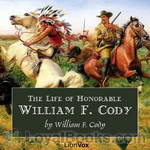 The Life of Honorable William F. Cody
The Life of Honorable William F. Cody
The life and adventures of Honorable William F. Cody–Buffalo Bill–as told by himself, make up a narrative which reads more like romance than reality, and which in many respects will prove a valuable contribution to the records of our Western frontier history. While no literary excellence is claimed for the narrative, it has the greater merit of being truthful, and is verified in such a manner that no one can doubt its veracity. The frequent reference to such military men as Generals Sheridan, Carr, Merritt, Crook, Terry, Colonel Royal, and other officers under whom Mr... | |
By: Stamp Act Congress of 1765 | |
|---|---|
 Declaration of Rights
Declaration of Rights
On June 8, 1765 James Otis, supported by the Massachusetts Assembly sent a letter to each colony calling for a general meeting of delegates. The meeting was to be held in New York City in October. Representatives from nine colonies met in New York. Though New Hampshire, Virginia, North Carolina and Georgia did not send delegates, the Assemblies of those missing colonies nonetheless agreed to support the works of the Congress. The meetings were held in Federal Hall in New York, and the delegates assembled on October 2... | |
By: Lilian Gask | |
|---|---|
 Folk Tales from Many Lands
Folk Tales from Many Lands
A collection of poetic folk tales from all over the world. (Kalynda) | |
By: Marianne Moore (1887-1972) | |
|---|---|
 Poems
Poems
In 1921, American poet H.D. collected and published a selection of previously published poems by Marianne Moore. Although this angered Moore, as it was entirely unauthorized, she later accepted the edition as well made and used it as the basis for her own 1924 publication of Obersvations. Moore’s unique poetry matches the experimentation underway during the American Modernist movement. Much of it incorporates seemingly out-of-place quotations into complex free verse that often uses Nature as a subject matter... | |
By: Mack Reynolds (1917-1983) | |
|---|---|
 Mercenary
Mercenary
Every status-quo-caste society in history has left open two roads to rise above your caste: The Priest and The Warrior. But in a society of TV and tranquilizers--the Warrior acquires a strange new meaning... (Introduction from the Gutenberg text) | |
 Ultima Thule
Ultima Thule
Ronny Bronston has dreamed all his life of getting a United Planets job that would take him off-world. He finally gets the opportunity when he is given a provisional assignment with Bureau of Investigation, Section G. But will he be able to complete his assignment and find the elusive Tommy Paine? | |
By: Dallas McCord Reynolds (1917-1983) | |
|---|---|
 Status Quo
Status Quo
Larry Woolford is a government agent, tasked with investigating subversive activity. He does everything an ambitious young man should do if he wants to succeed: wear the right clothes, listen to the right music, even drink vodka martinis. Then he stumbles across a conspiracy of Weirds plotting to overthow the entire existing social order. It's a race against time. Can he stop their fiendish plan, and keep America safe for shallow judgements based on status symbols? Status Quo was nominated for the 1962 Hugo Award for short fiction. | |
By: LibriVox volunteers | |
|---|---|
 The Yellow Sheet – the NaNoWriMo project 2007
The Yellow Sheet – the NaNoWriMo project 2007
An atomic bomb explodes in the mountains of Montana. But was there really a bomb? And was it really in Montana, or in Tokyo? Are Liz and Elizabeth the same woman, is she married with children, is her husband a spy? | |
By: Margaret Warner Morley (1858-1923) | |
|---|---|
 The Insect Folk
The Insect Folk
Through delightful outings with her students, a teacher introduces her class to the fascinating world of insects. She encourages her students to observe and ask questions. This is a wonderful science text for young children. | |
By: Cornelia Mee | |
|---|---|
 Exercises in Knitting
Exercises in Knitting
Mrs. Mee, her husband, and her sister ran a yarn and needlework import/warehouse business in Bath, England. Her books primarily contain practical everyday items that knit up quickly with the busy homemaker in mind. At this time, published knitting “receipts” did not contain abbreviations and were laborious to use. They were, however, rich in error! Later in her career, due to circumstances of war and the resulting social stress and poverty, many of her knitting books were printed for ladies’ charitable societies, which used her knitting “receipts” to clothe the poor mill workers who were out of work due to the American Civil War and the embargo of cotton. | |
By: Gotthold Ephraim Lessing (1729-1781) | |
|---|---|
 Miss Sara Sampson
Miss Sara Sampson
G.E. Lessing, widely regarded by students of theater as the world's first dramaturg, was also one of the first proponents of the German bourgeois tragedy. Miss Sara Sampson, in which a young woman runs off with a ne'er-do-well who is still entangled with his former mistress, was a reaction against the Voltarian verse drama popular in the eighteenth century. | |
By: Isabella L. Bird | |
|---|---|
 The Englishwoman in America
The Englishwoman in America
Isabella Bird travels abroad in Canada and the United States in the 1850s. As an Englishwoman and a lone female, she travels as far as Chicago, Prince Edward Island, and Cincinatti. Her observations on the trials and tribulations of the journeys are astute, if formed by her place and time in history. Adventures with pickpockets, omnibuses, cholera, and rat invested hotels deter her not. (Sibella Denton) | |
By: Lao Tzu | |
|---|---|
 Laotzu's Tao and Wu Wei
Laotzu's Tao and Wu Wei
The classic of the Way and of High Virtue is the Tao Teh Ching. Its author is generally held as a contemporary of Confucius, Lao Tzu, or Laozi. The exact date of the book’s origin is disputed. The book is divided into two parts, the Upper Part and the Lower Part. The Upper Part consists of chapters 1-37, and each chapter begins with the word “Tao,” or the Way. The Lower Part consists of chapters 38-81, and each chapter begins with the words “Shang Teh,” or High Virtue. This 1919 edition names the Lower Part as the Wu Wei, or translated variously as “not doing,” “non-ado,” or “non-assertion... | |
By: D. H. Lawrence (1885-1930) | |
|---|---|
 Aaron's Rod
Aaron's Rod
Flutist Aaron Sisson is caught up in the aftermath of WWI. A lost soul, he attempts to find himself in the comfort of bar-room talk and alcohol and a woman. Moving on, he spends time with a mining executive's relatives. But he finds the family a stuffy middle-class lot, bored with each other and themselves. He leaves his wife and children and strikes out for the open road. During a playing engagement at an opera performance, he reunites with the mining executive's family. Talk is of love and war, none of it very satisfying to anyone... | |
 Lost Girl
Lost Girl
"There is no mistake about it, Alvina was a lost girl. She was cut off from everything she belonged to." In this most under-valued of his novels, Lawrence once again presents us with a young woman hemmed in by her middle-class upbringing and (like Ursula Brangwen in The Rainbow) longing for escape. Alvina Houghton's plight, however, is given a rather comic and even picaresque treatment. Losing first her mother, a perpetual invalid, and later her cross-dressing father, a woefully ineffectual small-scale entrepreneur, Alvina feels doomed to merge with the tribe of eternal spinsters who surround her in the dreary mining community of Woodhouse... | |
By: Maturin Murray Ballou | |
|---|---|
 The Sea-Witch
The Sea-Witch
Maturin Murray Ballou was the author of dozens of books, chiefly centered around his extensive sea travel. He was deputy navy-agent in the Boston Custom House and circumnavigated in 1882, collecting material for several travel accounts and various nautical romances, amongst which The Sea-Witch can be counted. | |
By: George L. Apperson (1857-1937) | |
|---|---|
 The Social History of Smoking
The Social History of Smoking
This work tells the history of smoking in England from the social point of view. Thus it does not deal with the history of tobacco growing or tobacco related manufacture, but is rather the story of how smoking has fitted in with the fashions and customs throughout the ages, and the changes in the attitude of society towards smoking. | |
By: Pu Songling (1640-1715) | |
|---|---|
 Strange Stories From a Chinese Studio
Strange Stories From a Chinese Studio
MANUAL OF SURGERY, OXFORD MEDICAL PUBLICATIONSBY ALEXIS THOMSON, F.R.C.S.Ed.PREFACE TO SIXTH EDITION Much has happened since this Manual was last revised, and many surgical lessons have been learned in the hard school of war. Some may yet have to be unlearned, and others have but little bearing on the problems presented to the civilian surgeon. Save in its broadest principles, the surgery of warfare is a thing apart from the general surgery of civil life, and the exhaustive literature now available on every aspect of it makes it unnecessary that it should receive detailed consideration in a manual for students... | |
By: Edward George Bulwer-Lytton (1803-1873) | |
|---|---|
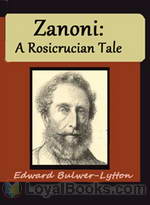 Zanoni
Zanoni
Zanoni, a timeless Rosicrucian brother, cannot fall in love without losing his power of immortality; but he does fall in love with Viola Pisani, a promising young opera singer from Naples, the daughter of Pisani, a misunderstood Italian violinist. An English gentleman named Glyndon loves Viola as well, but is indecisive about proposing marriage, and then renounces his love in order to pursue occult study. The story develops in the days of the French Revolution in 1789. Zanoni has lived since the Chaldean civilization... | |
By: Edmond Hamilton | |
|---|---|
 The Stars, My Brothers
The Stars, My Brothers
Edmond Hamilton (1904 – 1977) had a career that began as a regular and frequent contributor to Weird Tales magazine. The first hardcover publication of Science Fiction stories was a Hamilton compilation, and he and E.E. “Doc” Smith are credited with the creation of the Space Opera type of story. He worked for DC Comics authoring many stories for their Superman and Batman characters. Hamilton was also married to fellow author Leigh Brackett. – Published in the May, 1962 issue of Amazing Stories “The Stars, My Brothers” gives us a re-animated astronaut plucked from a century in the past and presented with an alien world where the line between humans and animals is blurred. | |
By: St. Ignatius of Antioch | |
|---|---|
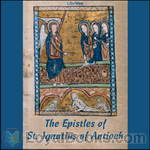 The Epistles of Ignatius
The Epistles of Ignatius
Ignatius of Antioch penned these letters to churches (Ephesians, Magnesians, Trallians, Romans, Philadelphians, and Smyrnaeans) and Polycarp on his way to martyrdom. Ignatius was an apologist for the Episcopal style of church government (as opposed to sole rule by a council of presbyters) which developed in the late first or early second century. Eager to die in imitation of his Savior, it was Ignatius who wrote this to the Roman church: “I am God’s wheat, and I am ground by the teeth of wild beasts that I may be found pure bread [of Christ].” | |
By: David Barrows | |
|---|---|
 A History of the Philippines
A History of the Philippines
This book is one of the earliest studies of Philippine history by an American scholar. In preparation for this book, the author conducted ethnological studies of indiginous island tribes after the American war in the Philippines. Since this book was intended for the Philippine reader, the author nicely places the history of the Islands into the broader context of European and American history. | |
By: Robert Sheckley (1928-2005) | |
|---|---|
 The Status Civilization
The Status Civilization
Will Barrent awakes without memories just before being deposited on Omega, a planet for criminals where the average life expectancy is 3 years. He’s listed as a murderer and released into the illicit society as a “peon” the lowest class imaginable. A mysterious girl gives him a weapon that starts him on his path to status, a path that requires constant brutality. But it must be borne if our hero is to discover the reason for his imprisonment; A reason that pits him against himself, and involves the sardonically similar but devoutly different creeds of Omega and Earth... | |
 Watchbird
Watchbird
3 Robert Sheckley short stories that demonstrate the breathof his fantastic imagination. In Watchbird, the question "can machines solve human problems?" is answered with a resounding YES! But there may be a few unforeseen glitches. Just a few. Warrior Race drops us into an alien race of warriors who fight in a way you will never be able to imagine until you listen. And Beside Still Waters is a gentle story that shows us a man who really wants to get away from it all ... sitting on a rock in the asteroid belt with only a robot for a friend. No girls allowed! A poignant and unsettling story to say the least. | |
By: Ring Lardner (1885-1933) | |
|---|---|
 You Know Me Al
You Know Me Al
Big, fat, dumb, lazy, vain, headstrong and cheap, Jack Keefe is a journeyman pitcher with the Chicago White Sox in the rowdy days of the Deadball Era, circa 1915, ruled by the likes of Ty Cobb and John McGraw. In You Know Me Al, we follow Jack Keefe’s life on-field and off, via the letters Jack writes to his old chum Al in his home town of Bedford, Indiana.Ring Lardner was a Chicago sportswriter who covered the White Sox, and he brought an insider’s knowledge of clubhouse life together with his biting wit and gift for the vernacular to create a comic gem in You Know Me Al... | |
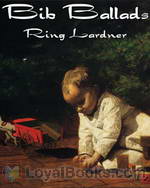 Bib Ballads
Bib Ballads
Ring Lardner is a typical parent when his first child is born, full of wonder and the rest of the usual emotions as he watches his little son grow. He wrote a series of 29 short poems on various facets of parenthood. | |
 Gullible's Travels, Etc.
Gullible's Travels, Etc.
Humorous stories of social climbing in America's "classless" society. | |
By: Anna Harriette Leonowens | |
|---|---|
 The English Governess at the Siamese Court
The English Governess at the Siamese Court
1862 Anna Leonowens accepted an offer made by the Siamese consul in Singapore, Tan Kim Ching, to teach the wives and children of Mongkut, king of Siam. The king wished to give his 39 wives and concubines and 82 children a modern Western education on scientific secular lines, which earlier missionaries’ wives had not provided. Leonowens sent her daughter Avis to school in England, and took her son Louis with her to Bangkok. She succeeded Dan Beach Bradley, an American missionary, as teacher to the Siamese court... | |
By: Jackson Gregory (1842-1943) | |
|---|---|
 The Bells of San Juan
The Bells of San Juan
Rod Norton is a lawman in a land where bandits and criminals make their own rules. Risking his life for justice and a future with the woman he loves, mortal danger awaits. For Norton and those in peril, the Bells of San Juan will chime. | |
By: Robert Browning (1812-1889) | |
|---|---|
 Pippa Passes
Pippa Passes
Pippa Passes was a dramatic piece, as much play as poetry, by Robert Browning published in 1841 as the first volume of his Bells and Pomegranates series. The author described the work as the first of a series of dramatic pieces. His original idea was of a young, innocent girl, moving unblemished through the crime-ridden neighbourhoods of Asolo. The work caused outrage when it was first published, due to the matter-of-fact portrayals of many of the area’s more disreputable characters – notably the adulterous Ottima – and for its frankness on sexual matters... | |
By: Eliza P. Donner Houghton (1843-1922) | |
|---|---|
 The Expedition of the Donner Party and Its Tragic Fate
The Expedition of the Donner Party and Its Tragic Fate
The Donner Party was a group of California-bound American settlers caught up in the “westering fever” of the 1840s. After becoming snowbound in the Sierra Nevada in the winter of 1846–1847, some of the emigrants resorted to cannibalism. Although this aspect of the tragedy has become synonymous with the Donner Party in the popular imagination, it actually was a minor part of the episode. The author was about 4 at the time. The first part of the book accounts the tragic journey and rescue attempts; the last half are reminiscences of the child orphan, passed from family to family while growing up. | |
By: Padraic Colum (1881-1972) | |
|---|---|
 The Children of Odin
The Children of Odin
Master storyteller Padraic Colum's rich, musical voice captures all the magic and majesty of the Norse sagas in his retellings of the adventures of the gods and goddesses who lived in the Northern paradise of Asgard before the dawn of history. Here are the matchless tales of All-Father Odin, who crosses the Rainbow Bridge to walk among men in Midgard and sacrifices his right eye to drink from the Well of Wisdom; of Thor, whose mighty hammer defends Asgard; of Loki, whose mischievous cunning leads him to treachery against the gods; of giants, dragons, dwarfs and Valkyries; and of the terrible last battle that destroyed their world. | |
 The Girl Who Sat By The Ashes
The Girl Who Sat By The Ashes
"Because she used to herd Goats in the high places and the rocky places, she went by the name of Girl-go-with-the-Goats. But that was not the name that she herself called herself. She called herself Maid-alone..."So begins Padriac Colum's rendition of this classical, well-known tale. He was a master story teller, and in this short book combines vivid characters and a depth of plot with the rough-hewn simplicity the story demands. If you are fond of Cinderella stories, you will enjoy this book. And if you believe you dislike all such, it may yet win you over and change your mind. | |
 The Adventures of Odysseus and the Tale of Troy
The Adventures of Odysseus and the Tale of Troy
Also known as “The Children’s Homer,” this is Irish writer Padraic Colum’s retelling of the events of Homer’s Iliad and Odyssey for young people. Colum’s rich, evocative prose narrates the travails of Odysseus, King of Ithaca: his experiences fighting the Trojan War, and his ten years’ journey home to his faithful wife Penelope and his son Telemachus. | |
 The Golden Fleece and the Heroes Who Lived Before Achilles
The Golden Fleece and the Heroes Who Lived Before Achilles
This is Irish folklorist Padraic Colum's masterful retelling of many Greek myths, focusing on Jason and the Argonauts' quest to find the Golden Fleece. He also includes the stories of Atalanta, Heracles, Perseus, Theseus, and others. | |
 The King of Ireland's Son
The King of Ireland's Son
The King of Ireland's Son is a children's novel published in Ireland in 1916 written by Padraic Colum, and illustrated by Willy Pogany. It is the story of the eldest of the King of Ireland's sons, and his adventures winning and then finding Fedelma, the Enchanter's Daughter, who after being won is kidnapped from him by the King of the Land of Mist. It is solidly based in Irish folklore, itself being originally a folktale. (Introduction by Wikipedia) | |
By: Anonymous, attributed to Kathleen Luard (c.1872) | |
|---|---|
 Diary of a Nursing Sister on the Western Front 1914-1915
Diary of a Nursing Sister on the Western Front 1914-1915
The title is, I think, self explanatory. The nurse in question went out to France at the beginning of the war and remained there until May 1915 after the second battle of Ypres when she went back to a Base Hospital and the diary ceases. Although written in diary form, it is clearly taken from letters home and gives a vivid if sometimes distressing picture of the state of the casualties occasioned during that period. After a time at the General Hospital in Le Havre she became one of the three or four sisters working on the ambulance trains which fetched the wounded from the Clearing Hospitals close to the front line and took them back to the General Hospitals in Boulogne, Rouen and Le Havre. | |
By: Ben Bova (1932-) | |
|---|---|
 The Dueling Machine
The Dueling Machine
The Dueling Machine is the solution to settling disputes without injury. After you and your opponent select weapons and environments you are injected into an artificial reality where you fight to the virtual death… but no one actually gets hurt. That is, until a warrior from the Kerak Empire figures a way to execute real-world killings from within the machine. Now its inventor Dr. Leoh has to prevent his machine from becoming a tool of conquest. – The Dueling Machine, written with Myron R. Lewis, first appeared in the May, 1963 issue of Analog Science Fact & Fiction. | |
By: Aeschylus (525/524 BC - c. 455/456 BC) | |
|---|---|
 The Oresteia
The Oresteia
The Oresteia is a trilogy by Aeschylus, one of the foremost playwrights of ancient Greece. It encompasses three plays: Agamemnon, The Libation Bearers, and The Furies. It tells the tragic tale of the House of Atreus, whose inhabitants have been cursed and are doomed to play out their bloody, vengeful destinies. At the beginning of the first part, the Trojan War has ended and the Greek general, Agamemnon, is returning victorious to his wife Clytemnestra. Yet she finds it difficult to forgive his sacrifice of their daughter, Iphigenia, who was killed to ensure the Greek fleet fair winds in their voyage to Troy... | |
By: E. E. “Doc” Smith (1890-1965) | |
|---|---|
 Triplanetary, First in the Lensman Series
Triplanetary, First in the Lensman Series
Triplanetary was first serialized in Amazing Stories in 1934. After the Lensman series became popular, Smith took his Triplanetary story and turned it into the first of the Lensman series, using it as a prequel to give the back story for the protaganists in the Lensmen series. He added 6 new chapters, doubling it in size and it's really a different book from the serialized novel, being published 14 years after the first. It was put into Gutenberg just last year. The novel covers several episodes in an eons-long eugenics project of the super-intelligences of the Arisia... | |
By: E. E. Smith (1890-1965) | |
|---|---|
 Subspace Survivors
Subspace Survivors
A team of space travelers are caught in a subspace accident which, up to now, no one has ever survived. But some of the survivors of the Procyon are not ordinary travelers. Their psi abilities allow them to see things before they happen. But will it be enough?Smith's story "Subspace Survivors" first appeared in the July 1960 issue of the magazine Astounding. | |
 Galaxy Primes
Galaxy Primes
They were four of the greatest minds in the Universe: Two men, two women, lost in an experimental spaceship billions of parsecs from home. And as they mentally charted the Cosmos to find their way back to earth, their own loves and hates were as startling as the worlds they encountered. | |